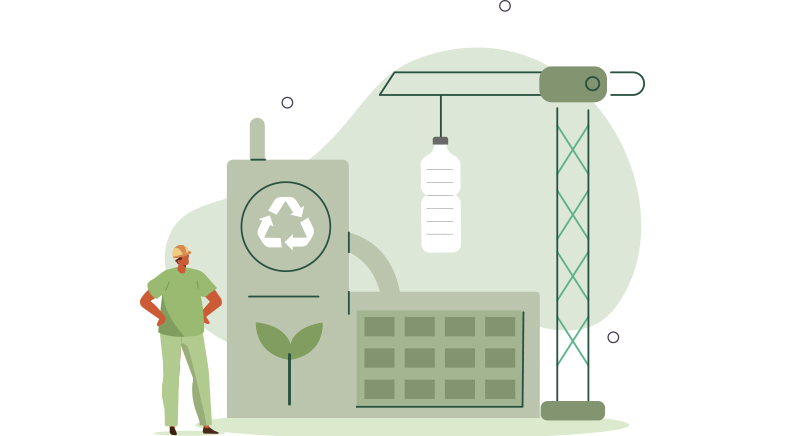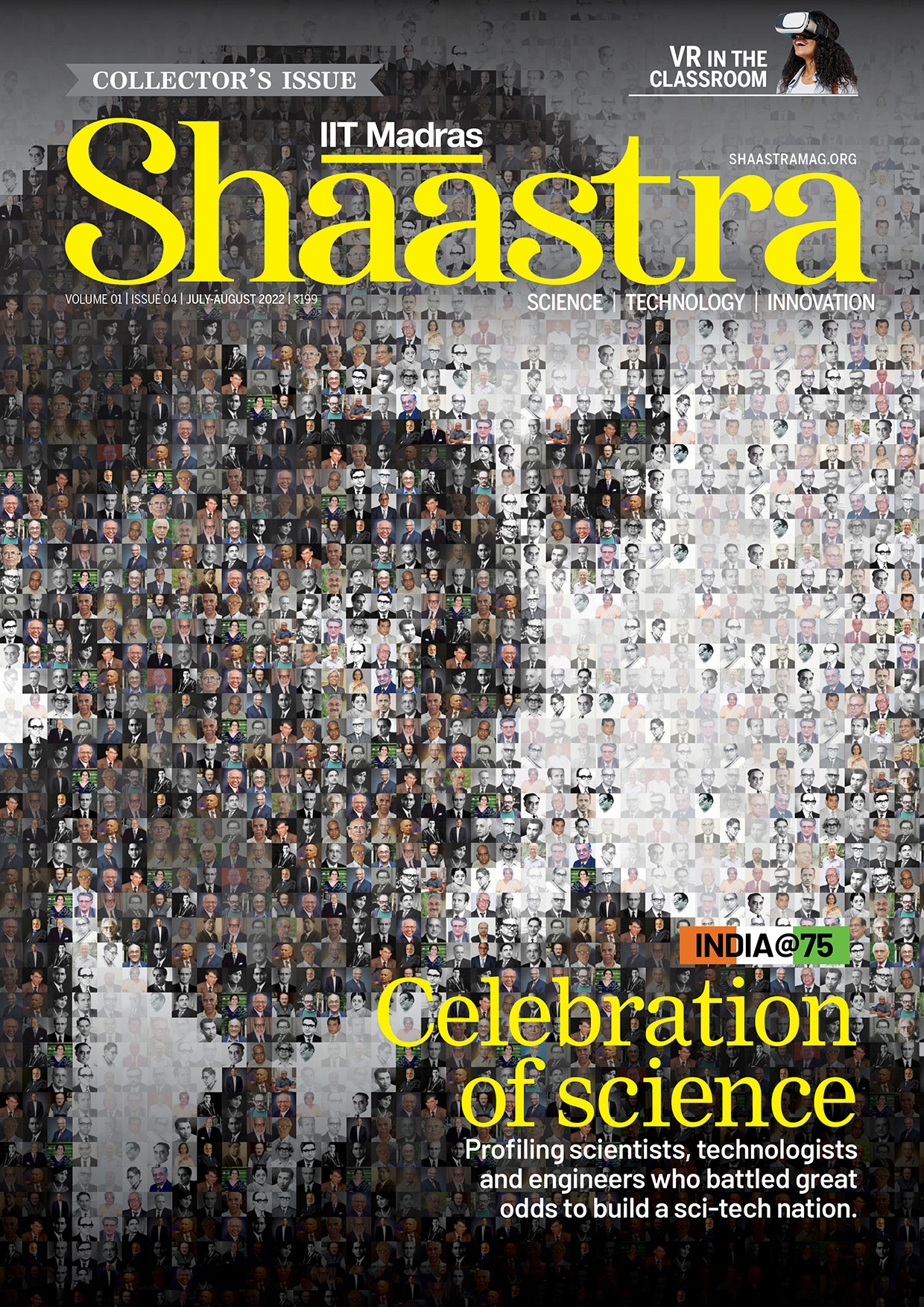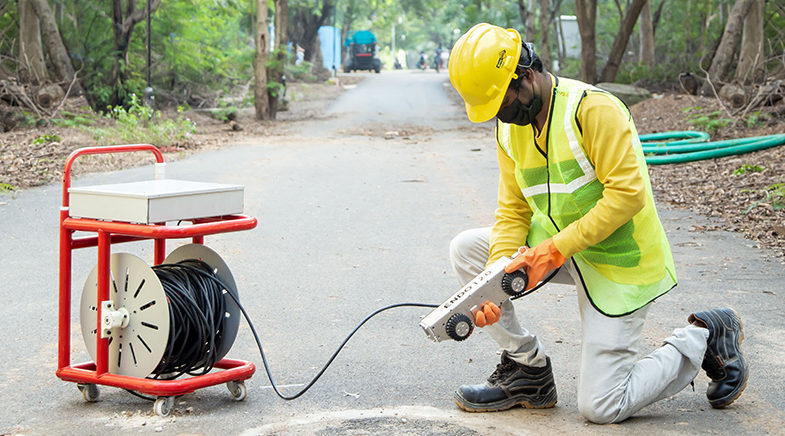Coming full circle
-
- from Shaastra :: vol 02 issue 02 :: Mar - Apr 2023

Transitioning to a circular economy is critical to addressing climate change, and the economic and other losses through wastage. Sustainable innovation holds the key.
howindialives.com
howindialives.com is a database and search engine for public data
What's the real cost of a packet of chips? It's hard to calculate because of the packaging. The light weight of plastic, its low cost and its reasonably high strength make plastic material ideal to pack chips and many other food items. But plastic is notoriously harmful from a conservation point of view: almost nothing gets recycled, according to a study by the Ellen MacArthur Foundation. Plastic goes into landfills or gets leaked into the ocean.
The minuscule parts that get recycled are converted to low-value items such as garbage or rigid furniture. New enterprises are trying to do more. For example, Ashaya, a social enterprise based in Pune, is converting plastic into sunglasses. The success of products like these hinges on many factors. However, it is an indicator that the 'circular economy' — an economy that stretches resources, minimises waste, and recycles or repurposes materials into new products — is seen not only as important but also cool.
Transitioning to a circular economy is important in the context of the reality of climate change — and the economic and other losses through wastage that it addresses. Currently, the predominant economic model that drives both agriculture and manufacturing results in huge wastage, significant economic loss, and also environmental loss given the way the waste is disposed. For example, besides an economic loss of $500 billion, the total plastics in oceans is expected to exceed the total fishes by weight by 2050.
PAST ISSUES - Free to Read


Have a
story idea?
Tell us.
Do you have a recent research paper or an idea for a science/technology-themed article that you'd like to tell us about?
GET IN TOUCH














